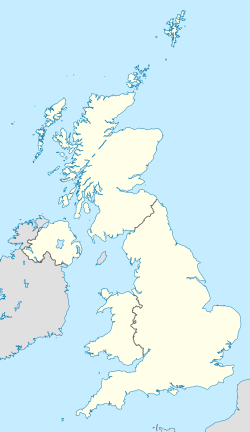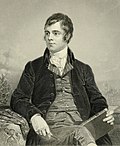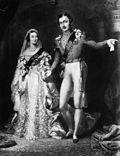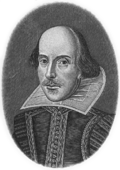Portal:United Kingdom
The United Kingdom Portal
 |
 |

| |
The United Kingdom of Great Britain and Northern Ireland, commonly known as the United Kingdom (UK) or Britain, is a country in Northwestern Europe, off the coast of the continental mainland. It comprises England, Scotland, Wales, and Northern Ireland. The UK includes the island of Great Britain, the north-eastern part of the island of Ireland, and most of the smaller islands within the British Isles, covering 94,354 square miles (244,376 km2). Northern Ireland shares a land border with the Republic of Ireland; otherwise, the United Kingdom is surrounded by the Atlantic Ocean, the North Sea, the English Channel, the Celtic Sea, and the Irish Sea. The UK maintains sovereignty over the British Overseas Territories, which are located across various oceans and seas globally. The United Kingdom had an estimated population of over 68.2 million people in 2023. The capital and largest city of both England and the United Kingdom is London. The cities of Edinburgh, Cardiff, and Belfast are the national capitals of Scotland, Wales, and Northern Ireland, respectively.
The UK has been inhabited continuously since the Neolithic. In AD 43, the Roman conquest of Britain began; the Roman departure was followed by Anglo-Saxon settlement. In 1066, the Normans conquered England. With the end of the Wars of the Roses, the English state stabilised and began to grow in power, resulting by the 16th century in the annexation of Wales, and the establishment of the British Empire. Over the course of the 17th century, the role of the British monarchy was reduced, particularly as a result of the English Civil War. In 1707, the Kingdom of England and the Kingdom of Scotland united under the Treaty of Union to create the Kingdom of Great Britain. In the Georgian era, the office of prime minister became established. The Acts of Union 1800 incorporated the Kingdom of Ireland to create the United Kingdom of Great Britain and Ireland in 1801. Most of Ireland seceded from the UK in 1922 as the Irish Free State, and the Royal and Parliamentary Titles Act 1927 created the present United Kingdom.
The UK became the first industrialised country and was the world's foremost power for the majority of the 19th and early 20th centuries, particularly during the Pax Britannica between 1815 and 1914. The British Empire was the leading economic power for most of the 19th century, a position supported by its agricultural prosperity, its role as a dominant trading nation, a massive industrial capacity, significant technological achievements, and the rise of 19th-century London as the world's principal financial centre. At its height in the 1920s, the British Empire encompassed almost a quarter of the world's landmass and population, and was the largest empire in history. However, its involvement in the First World War and the Second World War damaged Britain's economic power and a global wave of decolonisation led to the independence of most British colonies. (Full article...)
Featured article
Pontiac's Rebellion was a war launched in 1763 by North American First Nations who were dissatisfied with British policies in the Great Lakes region after the British victory in the French and Indian War/Seven Years' War (1754–1763). Warriors from numerous tribes joined the uprising in an effort to drive British soldiers and settlers out of the region. The war is named after the Odawa leader Pontiac, the most prominent of many native leaders in the conflict. The war began in May 1763 when American Natives, alarmed by policies imposed by British General Jeffrey Amherst, attacked a number of British forts and settlements. The First Nations were unable to drive away the British, but the uprising prompted the British government to modify the policies that had provoked the conflict. Warfare on the North American frontier was brutal, and the killing of prisoners, the targeting of civilians, and other atrocities were widespread. The ruthlessness of the conflict was a reflection of a growing racial divide between British colonists and American Indians. The British government sought to prevent further racial violence by issuing the Royal Proclamation of 1763, which created a boundary between colonists and Indians. (Full article...)
Featured biography
Mary II reigned as Queen of England and Ireland from 13 February 1689 until her death, and as Queen of Scotland (technically as Mary II of Scotland) from 11 April 1689 until her death. Mary, a Protestant, came to the throne following the Glorious Revolution, which resulted in the deposition of her Roman Catholic father, James II. Mary reigned jointly with her husband and first cousin, William III, who became the sole ruler upon her death. Popular histories usually know the joint reign as that of "William and Mary". Mary, although a sovereign in her own right, did not wield actual power during most of her reign. She did, however, govern the realm when her husband was abroad fighting wars. (Full article...)
General images -
Subportals
WikiProjects
Things you can do
- Visit the British Wikipedians' notice board.
- The noticeboard is the central forum for information and discussion on editing related to the United Kingdom.
- Comment at the British deletion sorting page.
- This page lists deletion discussions on topics relating to the United Kingdom.
Featured pictures
Did you know -

- ... that Graham Fraser pioneered cochlear implantation in the United Kingdom?
- ... that the 37-metre-long (121 ft) Burnham Pier is sometimes described as the United Kingdom's shortest?
- ... that the 2023 United Kingdom student protests were organised on TikTok and Snapchat?
- ... that Phil Fletcher as Hacker T. Dog caused Lauren Layfield to make the "most famous snort" in the United Kingdom in 2016?
- ... that New Zealand composer Maewa Kaihau sold her rights to the song "Now is the Hour" for £10, a decade before it became a hit in the United Kingdom and United States?
- ... that Surinder Singh Bakhshi led the successful containment of smallpox in the community during Birmingham's smallpox outbreak in 1978?
In the news
- 12 April 2025 – Steel Industry Act 2025
- The British government passes emergency legislation to control some management decisions at British Steel in order to prevent the closure of the Jingye Group-owned Scunthorpe Steelworks. (BBC News)
- 10 April 2025 –
- The United Kingdom's Cabinet Office announces it will cut around 2,100 jobs from its department, about a third of its total workforce, as part of wider government spending cuts. (BBC News)
- 9 April 2025 –
- Universal Destinations & Experiences formally announces that they have chosen a site near Kempston Hardwick in Bedfordshire, England, as the location for their Universal Studios United Kingdom resort. The theme park will officially open in 2031 and will be the largest theme park in the UK upon completion. (AP)
- 7 April 2025 –
- The first birth of a baby in the United Kingdom to a woman with a transplanted womb is announced. The baby girl, delivered at Queen Charlotte's and Chelsea Hospital in London to a 36-year-old woman, is reported to be healthy. (BBC News)
- 5 April 2025 – Tariffs in the second Trump administration, Executive orders in the second presidency of Donald Trump
- UK-based multinational car manufacturer Jaguar Land Rover suspends vehicle exports to the United States for a month to evaluate the impact of Trump's tariffs on the automotive industry. (Fox Business)
- 5 April 2025 – Israel–United Kingdom relations
- Israel blocks two British Labour Party MPs from entering the country. (Reuters)
Categories
Other UK-connected Wikipedias
Wikimedia
The following Wikimedia Foundation sister projects provide more on this subject:
-
Commons
Free media repository -
Wikibooks
Free textbooks and manuals -
Wikidata
Free knowledge base -
Wikinews
Free-content news -
Wikiquote
Collection of quotations -
Wikisource
Free-content library -
Wikiversity
Free learning tools -
Wikivoyage
Free travel guide -
Wiktionary
Dictionary and thesaurus






















































































































